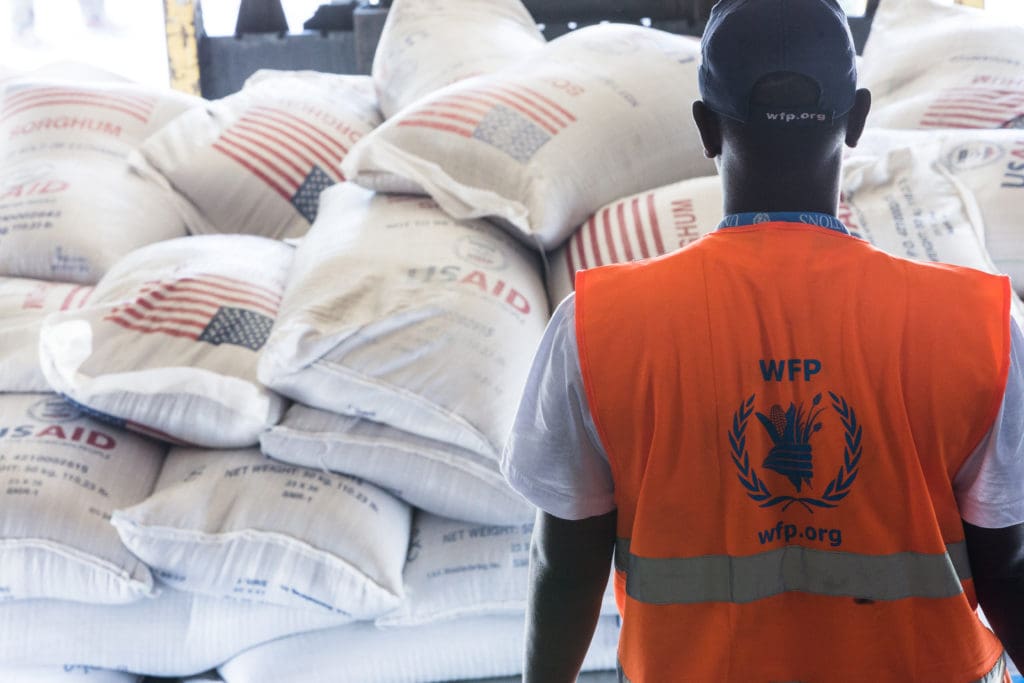
Statement From WFP USA Regarding Coronavirus
The World Health Organization has declared the novel coronavirus a pandemic, highlighting the “alarming levels of spread and severity” and the increasing number of cases around the world.
The news surrounding the disease has been escalating rapidly in recent days, and we know many people are concerned about how the pandemic is affecting communities worldwide.
The United Nations World Food Programme (WFP) is responding and preparing for how this disease could affect our operations and teams.
As always, the health and wellbeing of the world’s most vulnerable women, children and men, as well as our dedicated staff and partners, are our highest concern.
Right now, the U.N. World Food Programme’s primary focus is continuing to fulfill its mission to get lifesaving food to millions of people around the world while protecting the safety and health of its staff.
Currently, the U.N. World Food Programme is focusing on three key areas:
- Scaling-up the U.N. World Food Programme’s response, which could include buying additional emergency food supplies and moving them to strategic locations, increasing staffing, and adjusting its procedures to operate safely in places with active transmission.
- Leveraging the U.N. World Food Programme’s logistics expertise to support the humanitarian and health response. The U.N. World Food Programme is further strengthening its existing aviation services, logistics and telecommunication clusters so that it will be able to offer these services to partners and national governments where needed. Already, the U.N. World Food Programme works as the main logistics and containment support agency for the World Health Organization in dealing with global health emergencies.
- Advising and supporting governments to maintain supply chains. The U.N. World Food Programme is ready to enhance government response capacities and is continuing to monitor supply chain disruptions. The U.N. World Food Programme is committed to maintaining humanitarian access so that it can reach the people who are most in need.
The U.N. World Food Programme has risen to unexpected challenges and leveraged its unmatched logistical expertise to save lives in disease outbreaks before and is ready to do so once again. Responding to the Ebola outbreak during the 2014-2016 epidemic in West Africa, and more recently in 2018 in the Democratic Republic of the Congo, required a different kind of response than delivering food after a natural disaster or into a conflict zone – but the U.N. World Food Programme rose to the challenge.
Working together with partners, the U.N. World Food Programme provided extensive logistical support to the international community working to contain the outbreak and provided quarantined families with food to help them through the crisis. Good nutrition is an essential part of public health every day, but especially when epidemics strike communities that are already vulnerable. The U.N. World Food Programme is ready to help impacted people wherever possible.
At this challenging time we affirm our core belief: No one should die of something completely preventable like hunger. While COVID-19 may add new challenges to our work, it will never change that commitment. Indeed, as I write this, the U.N. World Food Programme is continuing its lifesaving operations around the world in places like Yemen, South Sudan and Syria, where hundreds of thousands of people have fled violence into the freezing cold with nothing but the clothes on their backs.
We can’t afford not to do our job, no matter what virus is knocking at our door.
As always, it is supporters like you who make this lifesaving work possible. The U.N. World Food Programme is 100% voluntarily funded, so every airdrop, every $75 emergency box that’s delivered, every school meal is the result of someone’s compassionate decision to give.
It is one of the things that gives me hope in these difficult times. On behalf of everyone at World Food Program USA, we thank you for your continued support and partnership.
Barron Segar
President and CEO
World Food Program USA




